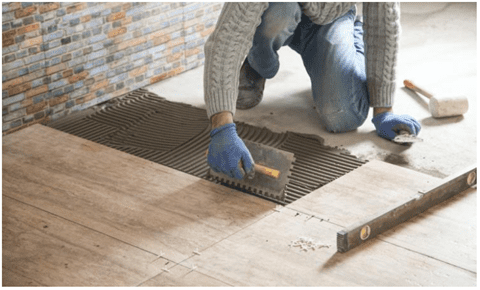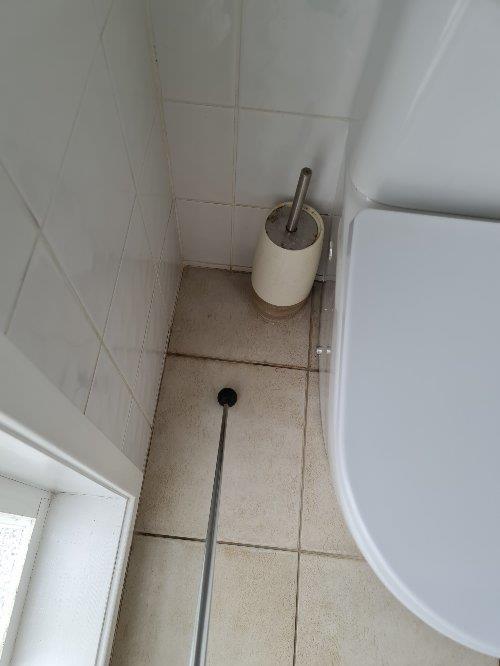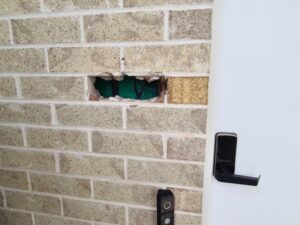Growing up, my dad was an avid golfer and there were always golf balls lying around the house. My brothers and I would often get in trouble for bouncing golf balls around the house and nearly breaking everything. Because our floors were tiled the golf balls would bounce really well until they got to a carpeted area and my brothers and I noticed that there were some tiles that made a different sound than others when the ball bounced off them. I now know that these were Drummy Tiles.
A Drummy Tile is one that sounds hollow or drum-like when tapped with a hard object. When I was young, it was the golf balls, now that I’m…not young…it’s a sounding tool. That hollow sound is caused because the tile has not bonded to the screed underneath properly.
What Causes Drummy Tiles..?
There are several reasons why a tile can be drummy or become drummy over time and almost all of them relate to how the floor was prepared and laid, but here are some of the more common causes:
- Insufficient amount of adhesive was used under that tile causing a hollow void to exist
- The adhesive used was not the correct type for that floor
- Too much time lapsed between applying the adhesive and laying the tile
- The substrate layer was not prepared adequately prior to laying the tiles
- Tile movement due to the wrong sized grout joints or expansion joints
- Lack of expansion joints for the area or floor type
- Foot traffic prior to full bonding of the adhesive
- Thermal &/or moisture exposure
- Timber pest attack to the substrate
Aside from the last 2 potential causes, the above relate directly to the quality of workmanship of the trades person who laid the tiles. It is always recommended that you engage a licensed tiler to undertake laying tiles.

Should I Be Worried About Drummy Tiles..?
If you’ve discovered drummy tiles or it’s been pointed out to you by someone and you’re wondering whether you need to be worried about it, the answer is…it depends.
If you’ve just built or renovated a house and during the process of having your pre-handover inspection drummy tiles have been discovered, it is definitely an issue to raise with the builder and have rectified.
If you’re buying an older house that has tiled floors with some drummy tiles present it should be noted that drummy tiles will often still perform their intended function for a reasonable period of time. However, if the drummy tile is accompanied with other signs such as cracking or loose grout joins, cracking to the tile itself, deflection or movement when loaded, it is likely in need of rectification.

How To Fix A Drummy Tile
Prior to fixing a drummy tile, you need to ensure that the cause is not a structural issue such as timber pest attack or some other disruption to the substrate which would just cause a recurrence of the issue if the tiles were replaced.
If it is as simple as inadequate bonding of the adhesive then the effected tile or tiled area can be lifted, cleaned and relayed by an experienced trades person to resolve the issue.
An alternative to relaying the tile/s is the use of an injectable adhesive product. This is done by drilling holes in the grout and injecting the flexible sealant into the void underneath the tile. This can be a quick, clean and inexpensive alternative to lifting and relaying tiles.
Call us on 1300 553 007 during business hours, Monday to Friday from 8:00am to 5:00pm & Saturday 9:00am to 4:00pm to speak to one of our friendly team. Request an obligation free quote 24/7 via our Free Quote Form


